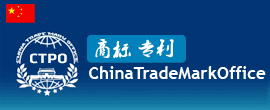
| This site in other countries/regions: |
| English 日本語 한국어 Deutsch Français Русский Italiano Español Português |
 |
||
L'Oreal exec bullish on nation's biz prospectsBeauty group L'Oreal's minority stake purchase in Chinese skincare brand Lan earlier this month marks the company's second investment in China in recent months, following a surge in local brand growth that continues to gain traction in the domestic beauty market. L'Oreal North Asia President and China CEO Vincent Boinay said the move highlights the importance of the Chinese market to the company's global strategy. "We firmly believe investing in China is investing in the future, and we will continue to cultivate the Chinese market, work with more Chinese brands to create a beautiful future, and meet the expectations of sophisticated Chinese consumers," Boinay said in a statement. The investment follows L'Oreal's 442 million yuan ($62 million) acquisition of a 6.67 percent stake in Chando Group, which the Shanghai-based brand disclosed last month in its prospectus for an IPO in Hong Kong. Such moves showcase its commitment to deeper localization. Earlier this month, Boinay said Chinese consumers are rapidly enhancing their professional understanding of ingredients and efficacy. This trend toward "specialized consumption" is compelling companies to prioritize localized research and development strategies. Lan, founded in 2019 and owned by Hangzhou Lanxi Cosmetics Co Ltd, is known for its "nourishing skin with oil "concept. The brand offers affordable skincare products, including facial essence oils, cleansing oils and serums, with most products priced under 200 yuan ($28). The company has quickly become a leader in the facial oil segment, ranking first in national facial oil sales for two consecutive years (2023 and 2024), according to consultancy Frost & Sullivan. During this year's Nov 11 shopping festival period, Lan remained the top-selling brand in the facial oil category, selling over 400,000 bottles across all channels. The skincare company had already secured several rounds of financing. According to business information services provider Qichacha, the brand completed two financing rounds in October 2020 and April 2021, receiving a cumulative investment of 100 million yuan. China's beauty and personal care market, valued at around $75 billion, has become increasingly competitive, with homegrown brands, known as "CBeauty", winning market share from international players. While China's beauty market is still growing, domestic brands have been gaining ground by offering products that cater more closely to local preferences and at more accessible price points. According to e-commerce platform Tmall's full-cycle beauty sales ranking for the Double Eleven shopping festival, Proya maintained its leading position, followed by foreign brands such as Estee Lauder, Lancome, L'Oreal Paris and SkinCeuticals. There are signs of recovery in China's beauty and personal care market, which are even more obvious if seen from September's total social retail figures. The trend aligns with the strong third quarter results from major foreign players such as Estee Lauder and L'Oreal. According to L'Oreal's third quarter earnings report, CEO Nicolas Hieronimus said that the company's China business rose 3 percent in the quarter, its first positive growth in two years. L'Oreal outpaced the broader market, particularly in its Luxe division. (Source from China daily) |
|
About us |
Contact us |
Fee FAQ |
Laws |
Marks |
Online billing
ChinaTradeMarkOffice.com Site:
International -
日本語 -
한국어 -
Deutsch -
Français -
Русский -
Italiano -
Español -
Português |